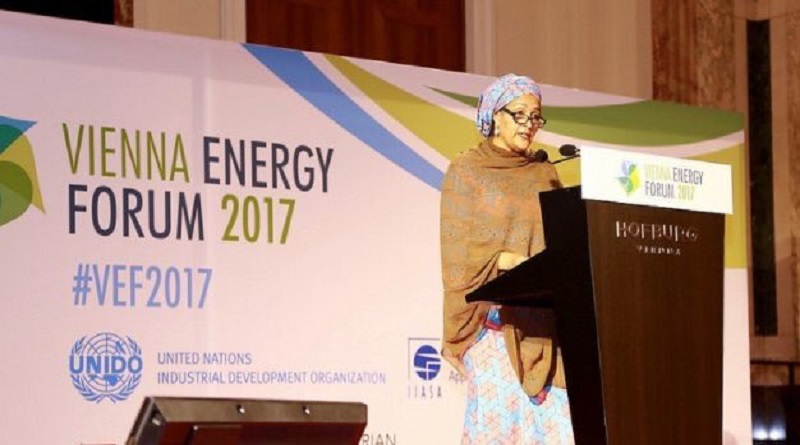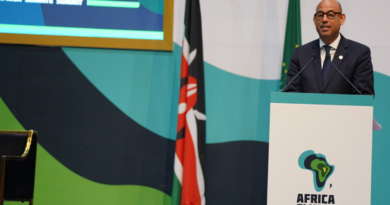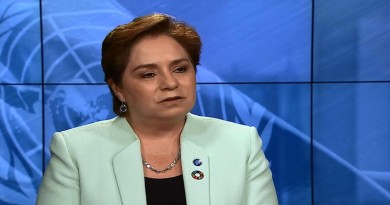Why energy is central to Paris Agreement, 2030 Agenda- Amina Mohammed
The United Nations Deputy Secretary General, Amina J, Mohammed has said that achieving the UN’s Sustainable Development Goals on energy, with its targets on universal access, energy efficiency and renewable energy, is central to both the 2030 Agenda and the Paris Agreement on climate change.
Mohammed, while speaking at this year’s Vienna Energy Forum a transformative approach to energy makes all our Sustainable Development Goals possible, from reducing poverty to delivering clean water; from powering innovation and industry to providing light for children to learn; from delivering essential health services to empowering women and youth; from addressing food security to mitigating climate change.
According to her, achieving SDG 7 on energy, with its targets on universal access, energy efficiency and renewable energy, will open a new world of opportunity for billions of people and it will lay the foundation for the eradication of poverty, for climate action and for a sustainable world.
“The 2030 Agenda and the Paris Agreement are mutually reinforcing and inseparable. And it is why Member States have overwhelmingly endorsed both. Implementing the 2030 Agenda and addressing climate change must go hand-in-hand,” she said.
The UN Deputy Secretary General also warned that time is running out, and that climate change impacts, driven by globally rising temperatures, are accelerating. Because of this, the Paris Agreement needs to be rapidly implemented and clean energy scaled up:“Droughts, floods, high heat, extreme weather, and rising seas are displacing people as never before and putting lives and livelihoods in jeopardy. And there is a real humanitarian cost, climate impacts have already incurred huge expense for business owners and the insurance industry. No country or sector is immune,” she said.
“Today, nearly one in every seven people lacks access to electricity. More than 3 billion people rely on wood, charcoal, animal and crop waste or other solid fuels to cook their food and heat their homes.
“That’s 40 per cent of all our people. Indoor air pollution kills some 4 million people a year, most of them are women and children inhaling toxic smoke.
“While there has been good progress in improving rates of electrification in recent years, the burden of energy poverty is still heavy in sub-Saharan Africa and South Asia. Energy production is also responsible for 35 per cent of our greenhouse gas emissions, while energy use in transport and industry accounts for another 35 per cent.
“So, transitioning to sustainable energy systems that meet every one’s needs, that leave no one behind, and that do so cleanly, reliably and affordably — is essential for sustainable development and the real solution to climate change.” She added.



